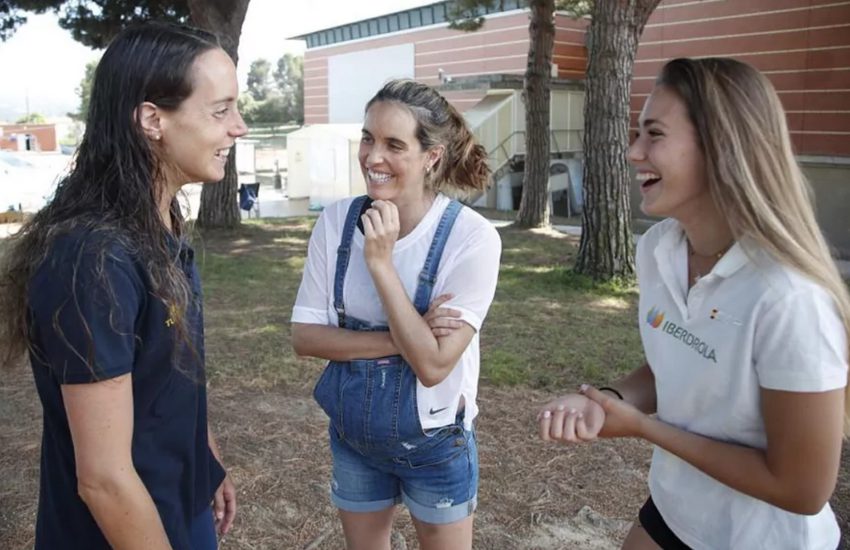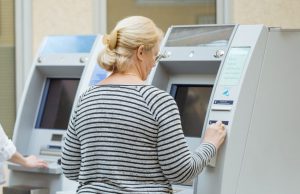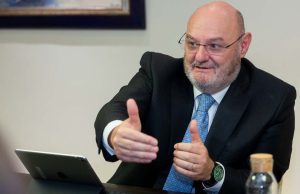Peace of mind and security. Two words that define the benefits for athletes of the Financial Education for Athletes project promoted by the member entities of CECA (CaixaBank, Kutxabank and Cajasur Banco, Abanca, Unicaja Banco, Ibercaja Banco, Caixa Ontinyent, Colonya Pollença and Cecabank). Ona Carbonell, synchronised swimmer and ambassador for CECA's Obra Social and Financial Education, Meritxell Mas, synchronised swimmer and winner of 3 silver medals at the World Championships, and Clara Fernández, under-18 indoor pole vault champion, held a talk and outlined in ten key points the importance of the course, developed by Cecabank's Banking Training School.
Looking ahead to the future
The athletes agree that the programme allows them to acquire more knowledge on how to manage their earnings and to consider what lies ahead after their career. Both Ona Carbonell and Clara Fernández have now completed the entire syllabus. "It has given me greater awareness, as up until the age of 18 my parents always took care of my finances, and now I feel I have more experience and criteria", explains the pole vaulter.
Control of one's own finances
All three acknowledge that it gives them tools to be more autonomous in their decision-making. "It is important to have a minimum level of knowledge. It should even be a subject taught at school. This stability is essential for sporting performance", says Ona Carbonell. Meritxell agrees. "It allows us to know all the options, it gives you the foundation to be able to choose", explains the swimmer.
Decision-making
"Knowledge is power and financial education is very important, regardless of how much you earn. Knowing that your future is a little more secure helps", says Ona Carbonell. Clara says she now feels empowered to make certain decisions related to her finances. "I had never studied these subjects before and I have discovered so many things that can be done", she explains.
Quality of life during injuries and in the future
Two of the key moments for any athlete are major injuries and facing the end of their career. They therefore agree that being in control of their finances is vital during these two events. "An athlete retires very early. At 30-something it's over. There are also injuries and many adversities that you cannot control. This stability and peace of mind is essential, and the course gives you that", acknowledges Ona. Meritxell, for her part, recalls that when they did not qualify for the Rio Games they were stripped of their grants and were forced to draw on their savings for two years. "With that training I would have been able to handle it better", she assures us.
Investment strategies
All three emphasise that the course gives them the tools to manage their finances in the best possible way and to see the different possibilities offered by the market. Ona Carbonell recalls that until recently, elite athletes were not even valued. Meritxell, for her part, recognises that athletes often receive all their income all at once, in a single payment, and they have to know how to manage this amount over the course of the year.
Saving habits
"Saving is important. We don't have a fixed income, we receive it all at once, it depends on the season... it creates uncertainty. Having this knowledge gives me peace of mind", admits Clara. Meritxell explains that grants vary depending on performance results.
Asset management
Ona recalls that there are NBA players who have ended up broke despite earning huge amounts of money during their careers. This is why, for the swimmer, managing her earnings well is vital for the future.
Analysis of expenses and reduction measures
Meritxell comments that it is important to monitor how your finances are doing, how they are moving, where you spend the most. "You don't think about all this when you're young", she admits. At 27, she is also considering some financial moves and explains that this course, which she will be starting soon, will be useful in guiding her decisions.
New professional phase
Ona, Meritxell and Clara are aware that the decisions they make now will shape their tomorrow. "It is an investment in the present and the future", warns Ona. In addition, they see financial education as another part of everything that encompasses the athlete, together with physical trainers, nutritionists, coaches...
Building a better society
All three agree that this type of education should reach all of society. The CECA sector's financial education course is focused on athletes, but they believe that even in schools there should be a subject on economics.













